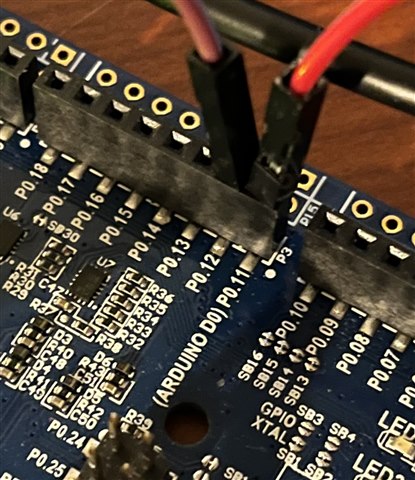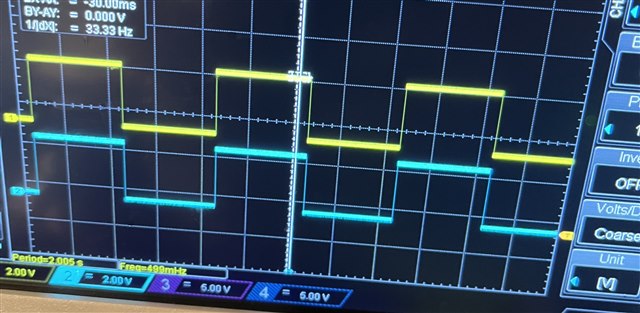When I toggle pin 12, it toggles pin 11 as well. When I toggle pin 11, nothing happens. I also checked pins 13-18 to see if they were affected by both pin 11 & 12 and they weren't. I have no code but the following running. Is there some configuration I'm missing?
const struct device *mux_dev = device_get_binding("GPIO_0");
gpio_pin_configure(mux_dev, 12, GPIO_OUTPUT | GPIO_ACTIVE_HIGH);
for(;;) {
gpio_pin_toggle(mux_dev,12);
k_sleep(K_MSEC(1000));
}
Here are images of the pins 11 & 12 I'm scoping.





